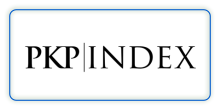ENHANCING DECISION-MAKING IN WATER RESOURCES MANAGEMENT: AN INNOVATIVE ASSESSMENT OF EXPERT CONSISTENCY AND COMPETENCE
DOI:
https://doi.org/10.29121/ijoest.v8.i2.2024.584Keywords:
Water Resources Planning and Management, Performance Indicators, Experts, Ramsars, AHP, TOPSISAbstract
In the assessment of principles and guidelines to achieve specific goals before strategies in water resources and related sectors are formulated, the quality of experts participating in making group decisions should be evaluated. This paper introduces an innovative approach designed to evaluate the quality of group members based on their consistency and deviations from the group's decision. The group members are considered as alternatives within a multi-criteria framework, employing several typical performance indicators as criteria to assess their competence and compliance with the group. Considering the policy-making, the paper provides a rationale for possibly excluding certain members from the decision-making process to prevent making unsustainable decisions. A case study is presented about the evaluation of the importance of six Ramsar sites in Serbia, facing imminent threats from water regime disturbances and climate change-induced droughts. Seven experts participated in the process and the results revealed that several experts displayed the poorest performance across all three prioritization schemes. This suggests the necessity for re-evaluating their judgments or considering their exclusion from the final decision-making process. The proposed assessment procedure holds promise for enhancing the potential to derive sustainable solutions in any complex and critical domain of water resources policy-making and strategic planning.
Downloads
References
Aguaron, J., & Moreno-Jimenez, J.M. (2003). The Geometric Consistency Index: Approximated Thresholds. European Journal of Operations Research, 147(1), 137-145. https://doi.org/10.1016/S0377-2217(02)00255-2
Aguaron, J., Escobar, M.T., Moreno-Jiménez, J.M., & Turón, A. (2019). AHP-Group Decision Making Based on Consistency. Mathematics, 7, 242. https://doi.org/10.3390/math7030242
Bang, D., Aitchison, L., & Moran, R. (2017). Confidence Matching in Group Decision-Making. Nature Human Behavior, 1. https://doi.org/10.1038/s41562-017-0117
Barzilai, J. (1997). Deriving Weights from Pairwise Comparison Matrices. Journal of Operations Research Society, 48 (12), 1226-1232. https://doi.org/10.1057/palgrave.jors.2600474
Cha, S. H. (2007). A Comprehensive Survey on Distance/Similarity Measures Between Probability Density Functions. Journal of Mathematical Models and Methods in Applied Science, 4(1), 300-300.
Chiclana, F., Tapia Garcia, J.M., Moral, M.J., & Herrera-Viedma, E. (2013). A Statistical Comparative Study of Different Similarity Measures of Consensus in Group Decision-Making. Information Science, 221, 110-123. https://doi.org/10.1016/j.ins.2012.09.014
Crawford, G., & Williams, C. (1985). A Note on the Analysis of Subjective Judgment Matrices. Journal of Mathematical Psychology, 29(4), 387-405. https://doi.org/10.1016/0022-2496(85)90002-1
D'Angelo, A., Eskandari, A., & Szidarovszky, F. (1998). Social Choice Procedures in Water Resources Management. Journal of Environmental Management, 52(3), 203-210. http://dx.doi.org/10.1006/jema.1997.0156
Deza, M.M., & Deza, E. (2009). Encyclopedia of Distances. Springer, Berlin Heidelberg. https://doi.org/10.1007/978-3-642-00234-2_1
Ekhtiari, M., & Zandieh, M. (2022). A Multi-Objective Bi-Level Stochastic Programming for Water Sustainable Supply and Allocation Problem. Journal of Industrial and Systems Engineering, 14(2), 1-31.
Fontela, E., & Gabus, A. (1976). The DEMATEL Observer. Battelle Geneva Research Center, Geneva, Switzerland.
Freitas, M.B.C., Xavier, A., Fragoso, R., & Antunes, C. (2022). A Composite Indicator to Measure Sustainable Water use in Portugal: A Compromise Programming Approach. Journal of Environmental Management, 311. https://doi.org/10.1016/j.jenvman.2022.114791
Fu, C., Chang, W., & Yang, S. (2020). Multiple Criteria Group Decision-Making Based on Group Satisfaction. Information Science, 518, 309-329. https://doi.org/10.1016/j.ins.2020.01.021
Gabus, A., & Fontela, E. (1972). World Problems, an Invitation to Further Thought Within the Framework of DEMATEL. Battelle Geneva Research Center, Geneva, Switzerland.
Golany, B., & Kress, M. (1993). A Multicriteria Evaluation of Methods for Obtaining Weights from Ratio Scale Matrices. European Journal of Operations Research, 69, 210-220. https://doi.org/10.1016/0377-2217(93)90165-J
Huang, I.B., Keisler, J., & Linkov, I. (2011). Multi-Criteria Decision Analysis in Environmental Science: Ten Years of Applications and Trends. Science of the Total Environment, 409(19), 3578-3594. https://doi.org/10.1016/j.scitotenv.2011.06.022
Humphreys, P., & Jones, G. (2006). The Evolution Of Group Decision Support Systems To Enable Collaborative Authoring of Outcomes. World Futures, 62 (3), 193-222. https://doi.org/10.1080/02604020500509546
Jarraya-Horriche, F., Brahim, H.B., & Slama, F. (2022). The Compromise Programming Method to Choose Artificial Recharge Sites in Mornag Aquifer (Tunisia). Arab Journal of Geosciences 15, 1418. https://doi.org/10.1007/s12517-022-10695-1
Khademi, M., Sharifi, S., Salimi,M., Pansera, B.A., & Ferrara, M. (2022). An Interval-Stochastic Compromise Programming for Urban Water Resource Allocation. AAPP - Atti della Accademia Peloritana dei Pericolanti Classe di Scienze Fisiche, Matematiche e Naturali, 100(1), A4 (2022).
Kou, G., & Lin, C. (2014). A Cosine Maximization Method for the Priority Vector Derivation in AHP. European Journal of Operations Research, 235, 225-232. https://doi.org/10.1016/j.ejor.2013.10.019
Marzieh, M., Kourosh, B., Hossein, Y., & Sina, Z. (2021). A Scenario-Based Management of Water Resources and Supply Systems Using a Combined System Dynamics and Compromise Programming Approach. Water Resources Management (In Press). https://doi.org/10.1007/s11269-021-02942-z
Mikhailov, L. (2000). A Fuzzy Programming Method for Deriving Priorities in the Analytic Hierarchy Process. Journal of Operations Research Society, 51, 341-349. https://doi.org/10.1057/palgrave.jors.2600899
Mikhailov, L., & Singh, M.G. (1999). Comparison Analysis of Methods for Deriving Priorities in the Analytic Hierarchy Process. IEEE SMC'99 Int. Conf. on Systems, Man, and Cybernetics, 1, 1037-042. https://doi.org/10.1109/ICSMC.1999.814236
Moreno-Jimenez, J., Aguaron, J., & Escobar, M.T. (2008). The Core of Consistency in AHP-Group Decision Making. Group Decision and Negotiation, 17(3), 249-265. https://doi.org/10.1007/s10726-007-9072-z
Romero, C., & Rehman, T. (2003). Multiple Criteria Analysis for Agricultural Decisions (ed. by Ch. 5: Compromise Programming. Developments in Agricultural Economics 11, 63-78. https://doi.org/10.1016/S0926-5589(03)80007-9
Saaty, T.L. (1980). The Analytic Hierarchy Process. McGraw-Hill, New York. https://doi.org/10.21236/ADA214804
Sarband, E.M., Shahab, A., Attari, J., & Ebrahimi, K. (2021). Adaptation of a Compromise Programming Approach for Evaluating the Localized Impacts of Water Allocation. Hydrological Sciences Journal, 66(8), 1275-1287. https://doi.org/10.1080/02626667.2021.1912755
Si, S.L., You, X.Y., Liu, H.C., & Zhang, P. (2008). DEMATEL Technique: A Systematic Review of the State-of-the-art Literature on Methodologies and Applications. Mathematical Problems in Engineering. https://doi.org/10.1155/2018/3696
Srdjevic, B. (2007). Linking Analytic Hierarchy Process and Social Choice Methods to Support Group Decision-Making in Water Management. Decision Support Systems, 42(4), 2261-2273. https://doi.org/10.1016/j.dss.2006.08.001
Srdjevic, B., Medeiros, Y. D. P., & Srdjevic, Z. (2022). Empowering Small Stakeholder Groups in Selecting a Long-Term Water Management Plan. Water Policy, 24(7), 1208-1222. https://doi.org/10.2166/wp.2022.075
Srdjevic, B., Srdjevic, Z., & Zoranovic T. (2002). PROMETHEE, TOPSIS, and CP in Multicriteria Decision Making in Agriculture. Annals of Scientific Work 26 (1), 5-23.
Srđevic, B. (2005). Combining Different Prioritization Methods in the Analytic Hierarchy Process Synthesis. Computers and Operations Research, 32 (7), 1897-1919. https://doi.org/10.1016/j.cor.2003.12.005
Srđević, B., Srđević, Z., Ilić, M., & Ždero, S. (2021). Group Model for Evaluating the Importance of Ramsar Sites in Vojvodina Province of Serbia. Environment, Development and Sustainability, 23, 10892-10909. https://doi.org/10.1007/s10668-020-01093-2
Srđević, Z., Srđević, B., Suvočarev, K., & Galamboš, L. (2020). Hybrid Constructed Wetland Selection as a Group Decision-Making Problem. Water Resources Management, 34, 295-310. https://doi.org/10.1007/s11269-019-02444-z
UNWTO (2012). Secretariat of the Ramsar Convention on Wetlands. Gland, Switzerland & World Tourism Organization.
Zeleny, M. (1982). Multiple Criteria Decision Making. New York: McGraw-Hill.
Published
How to Cite
Issue
Section
License
Copyright (c) 2024 Bojan Srdjevic, Zorica Srdjevic, Milica Ilić, Senka Ždero

This work is licensed under a Creative Commons Attribution 4.0 International License.






























